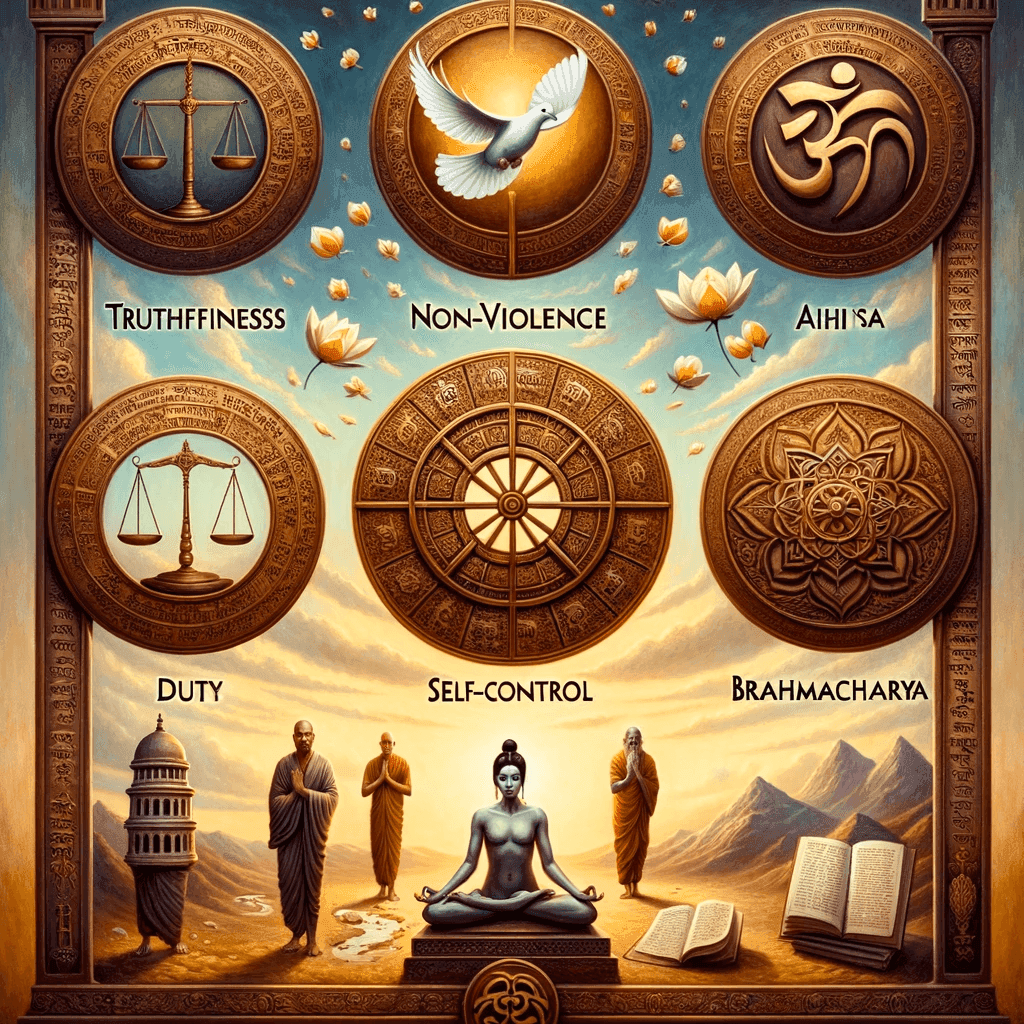Moral Guidelines in Sanatan Dharma
Sanatan Dharma, often equated with Hinduism, is mistakenly thought to lack moral guidelines. Contrary to this myth, Sanatan Dharma provides a comprehensive set of ethical principles and guidelines for leading a virtuous life, deeply embedded in its teachings and scriptures.
Myths/Truths and Other Details

Why There Is a Myth?
The myth that Sanatan Dharma has no moral guidelines likely stems from its perceived flexibility and the absence of a centralized religious authority or a single holy book like in some other religions. This decentralized and diverse nature of Sanatan Dharma might lead to misconceptions about its moral framework.
What's the Truth?
Sanatan Dharma encompasses a rich set of ethical principles that guide individuals towards righteous living. These principles are not rigid commandments but rather a framework for ethical decision-making, emphasizing duties (dharma), righteousness, compassion, non-violence (ahimsa), truthfulness (satya), and self-discipline.
Ethical Principles and Practices
- Dharma (Duty and Righteousness): Dharma is a key concept in Sanatan Dharma, referring to the duties and responsibilities of an individual towards themselves, their family, society, and the universe. It advocates for living a life of righteousness and moral integrity.
- Ahimsa (Non-Violence): Ahimsa is a fundamental principle, promoting non-violence and compassion towards all living beings. It extends beyond physical non-violence to include non-violence in thoughts and words.
- Satya (Truthfulness): Truthfulness is highly valued, with an emphasis on honesty and integrity in one's actions and speech.
- Karma (Action and Consequence): The law of karma, which states that every action has a corresponding reaction, encourages individuals to act ethically, understanding that their actions have consequences.
Sanatan Dharma in Daily Life
- Applying Ethical Principles: Sanatan Dharma encourages the application of these ethical principles in daily life, guiding individuals in their personal, professional, and social conduct.
- Moral Decision-Making: The teachings provide a framework for moral decision-making, encouraging individuals to consider the impact of their actions on themselves and others.
...




